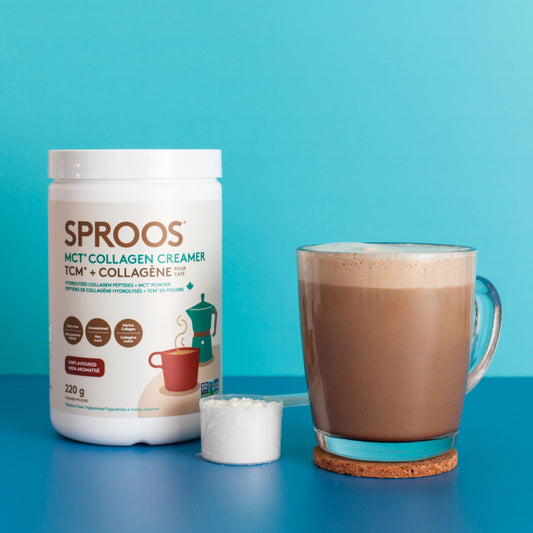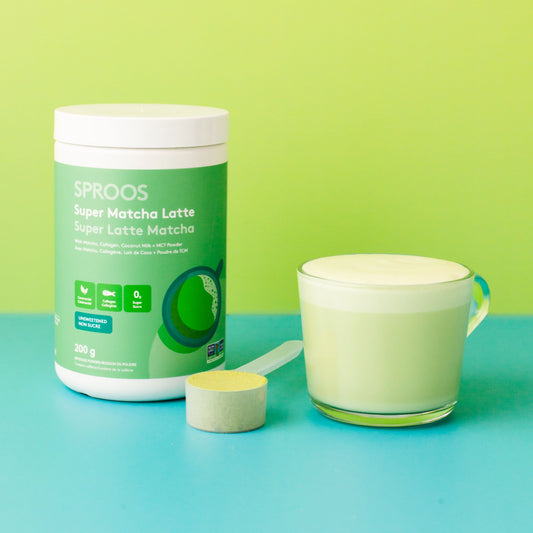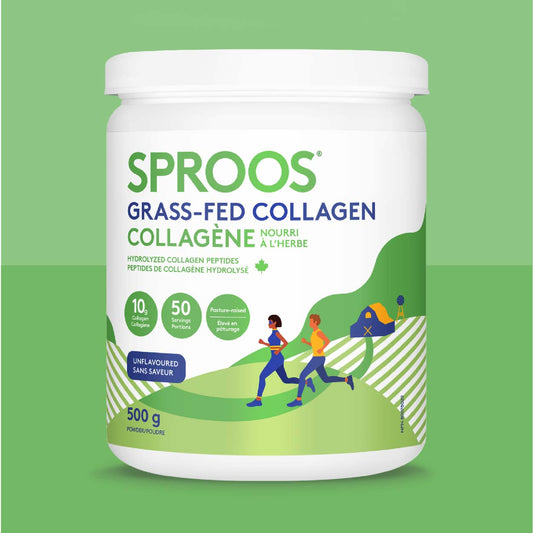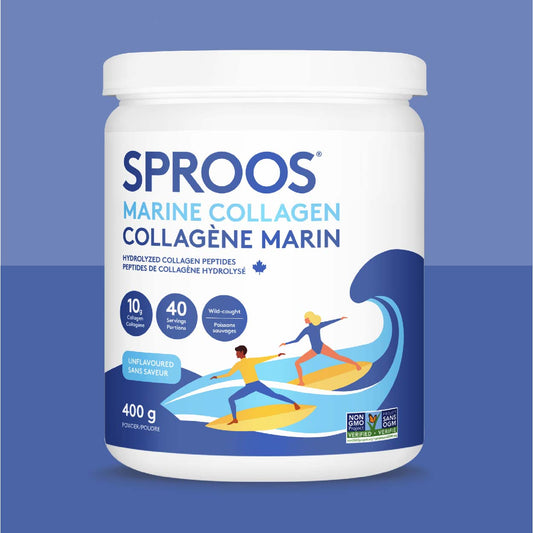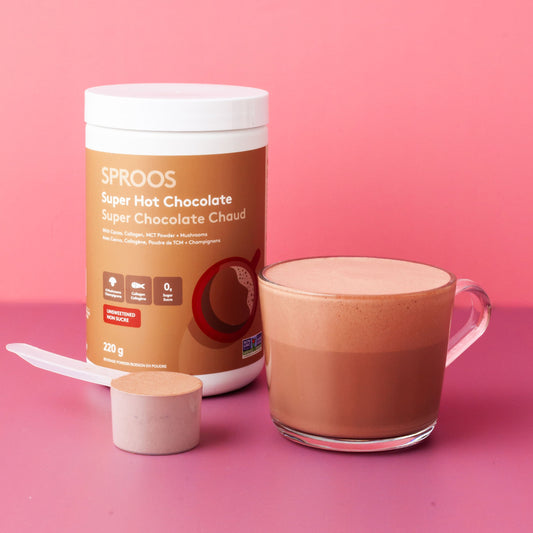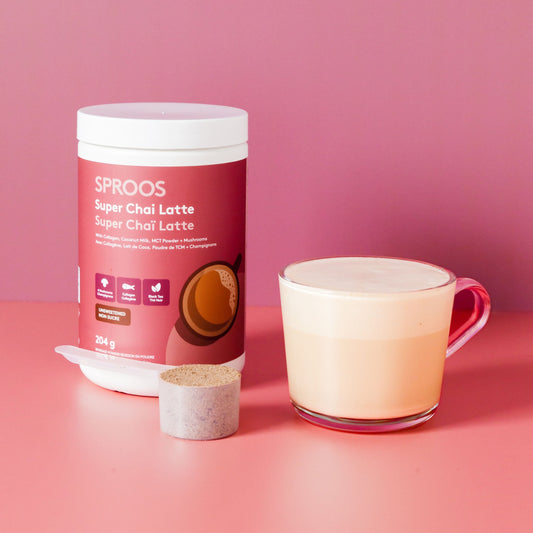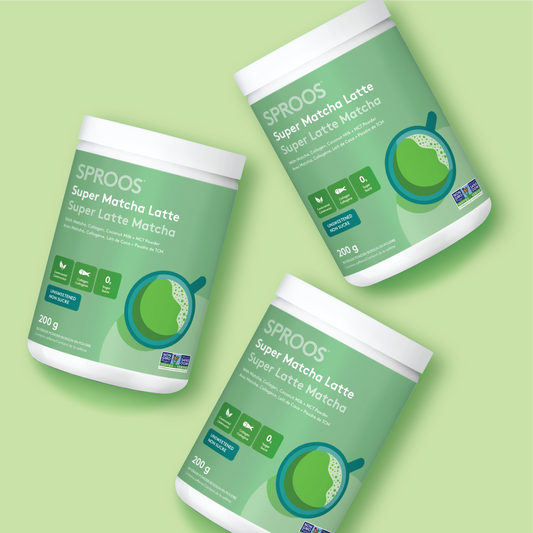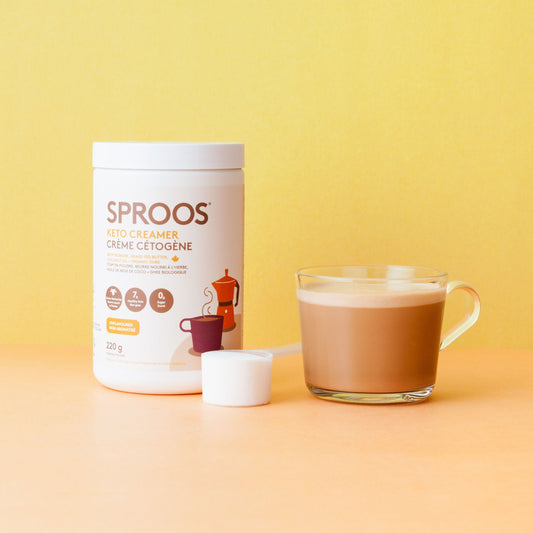The world of collagen products can be super intimidating, especially if you are new to taking collagen supplements. Don't worry, we've got your back. We will be getting into the nitty gritty of collagen supplements, but before we get into it, let's talk about what collagen is.
Collagen is a structural protein that is found throughout our bodies. There are many different types of collagen - over 25 different types! It makes up about 25% of the total protein content in our bodies. Collagen is made up of three amino acids, the building blocks of protein. These amino acids are glycine, hydroxyproline and proline. Collagen has many, many benefits. It can make your skin look fuller and decrease the appearance of wrinkles. It can decrease joint pain and make your bones stronger and more resistant to stress. It can even improve sleep quality and help with leaky gut syndrome. The list goes on and on! Collagen supplements come in a variety of different forms - capsules, powders, liquids - and new products are emerging all the time. There are even topical collagen products that often target skin, although studies show ingesting collagen provides greater benefits! Then there are collagen products suitable for consumption, and that's what we will be focusing on today.
So, how do I choose a collagen supplement?
It can be very overwhelming to choose a collagen product, especially being new to the collagen world. Here we will outline a few things to look for when choosing a collagen supplement that best fits your needs.Different products contain different types of collagen.
If you remember from earlier on, there are over 25 different types of collagen. The most common type of collagen found in supplements are type I, II and III collagen. Type I collagen is one of the most abundant proteins in the body and is particularly important in skin, connective tissue and bone. It plays an important role in maintaining the structure of those tissues. It typically comes from marine sources. Marine collagen is known for its benefits to skin. It can help decrease the appearance of wrinkles. It can also help to increase skin elasticity and hydration. Type II collagen is primarily found in our connective tissue. Think joints! The collagen that makes up our ligaments and tendons is predominantly type II collagen. Type II collagen is at much lower levels in the body than type I and type III collagen, but still important to joint health. Type II collagen is often sourced from chicken bone broth collagen which comes from, you guessed it, chickens. Type III collagen is commonly sourced from bovine collagen. Bovine collagen also contains type I collagen. Type III collagen is generally found in our muscles, blood vessels, digestive system and in our skin.Not all collagen supplements can be easily absorbed by your body.
An important part when considering collagen supplements is their bioavailability. This means that you want the collagen supplement to be in a form that is easy for the body to absorb. If the body cannot absorb the collagen, then it cannot be used, and you will not be able to reap the rewards. Collagen protein is a large molecule. This makes it difficult for the body to break down and absorb it. That's why you want to look for hydrolyzed collagen peptides. In this form the collagen is broken into smaller, absorbable pieces. Another way to check this is by looking to see if the molecular weight of the collagen peptides is provided. The lower the number, the better. On average, hydrolyzed collagen peptides will be between 3000-5000 kilodaltons. You may also see products with hydrolyzed collagen peptides. Hydrolyzed collagen peptides are often heat treated. This means that you can safely add your collagen powders to your hot drinks, baking and cooking and the collagen protein will still be intact. When looking at packaging, you want to check the ingredients. Hydrolyzed collagen peptides are the way to go! This ensures that the collagen is broken down into small pieces that your body can absorb and that it is safe to add to hot drinks and food without degrading the collagen protein.Collagen sourcing is important and should be considered.
Sourcing can be an important factor that some people may want to consider when looking for a collagen supplement. Our Marine Collagen comes from fish from the North Atlantic. We use sustainable practices and are proud to do so. We use the skin and scales of smaller fish (cod, haddock). This material would normally be discarded. Our Grass-Fed Collagen is sourced from North American, grass-fed, and pasture-raised cattle. The sustainability of this was very important to us because often cattle from other areas of the word may not be as sustainable. For example, cattle from South America are linked to Amazon deforestation.What form of collagen is the best? A capsule, powder, or a liquid form of collagen?
Our choice when it comes to collagen supplements is powders. For us, those have the greatest versatility. You can easily add collagen powder to different beverages, baking and cooking. There are so many different flavours of collagen powder (including unflavoured products!) to suit everybody's tastes and needs. We love adding MCT Collagen Creamer to our coffee and our Collagen Greens to our salad dressing. While there are tons of fun smoothie recipes out there, collagen powder can just as easily be added to a glass of water or juice. All you have to do is add the desired amount and whisk until there are no chunks. We like using a hand mixer (especially when adding collagen powder to our coffee), but our collagen just as easily dissolves when mixed. Don't worry, it may take a few seconds to fully dissolve but before you know it, your collagen drink will be good to go!Okay, so you've got your collagen. But how much collagen do you need to see and feel the benefits? And for how long do you have to take this supplement?
Being a (proudly!) Canadian company here at Sproos, we follow Health Canada's guidelines when it comes to the recommended dose of collagen necessary to see benefits. The amount? No more than 10 g per day. While there are people who consume more than 10 g per day, more than that can cause digestive discomfort or upset. It is completely possible to build up your tolerance to collagen products, but science shows that 10 g is enough to reap the benefits of collagen.The key to taking a collagen supplement:
Consistency! Yes, you heard us. The most important part is that you take a collagen supplement every day. Health Canada recommends at least 5 months of consistent supplementation. Some studies show that the benefits of collagen may be observed after as little 8 weeks!How can collagen powder be incorporated into your daily routine?
The big thing with collagen is taking it every day. The time of day doesn't matter so much, it just is really important to take collagen every day. Collagen powders can be incorporated into so many different foods and drinks. Adding collagen powder to your morning tea or coffee or incorporating into a post-workout morning smoothie is a great way to start your day. Collagen powder can also be added into your baking (check out these delicious brownies) or cooking! It is a great way to sneak in a little extra protein. If you've read about the health benefits of collagen, then you know that collagen can even contribute a better night's sleep. Adding collagen into a warm beverage or tea before bed can be a great way to incorporate collagen daily! Have any more suggestions? Share your ideas with us on social media!
References
- León-López, A., Morales-Peñaloza, A., Martínez-Juárez, V. M., Vargas-Torres, A., Zeugolis, D. I., & Aguirre-Álvarez, G. (2019). Hydrolyzed Collagen—Sources and Applications. Molecules, 24(22), 4031.
- Lodish, H., Berk, A., Zipursky, S. L., Matsudaira, P., Baltimore, D., & Darnell, J. (2000). Collagen: The Fibrous Proteins of the Matrix. Molecular Cell Biology. 4th Edition.
- Miranda, R. B. de, Weimer, P., & Rossi, R. C. (n.d.). Effects of hydrolyzed collagen supplementation on skin aging: A systematic review and meta-analysis. International Journal of Dermatology, n/a(n/a).


